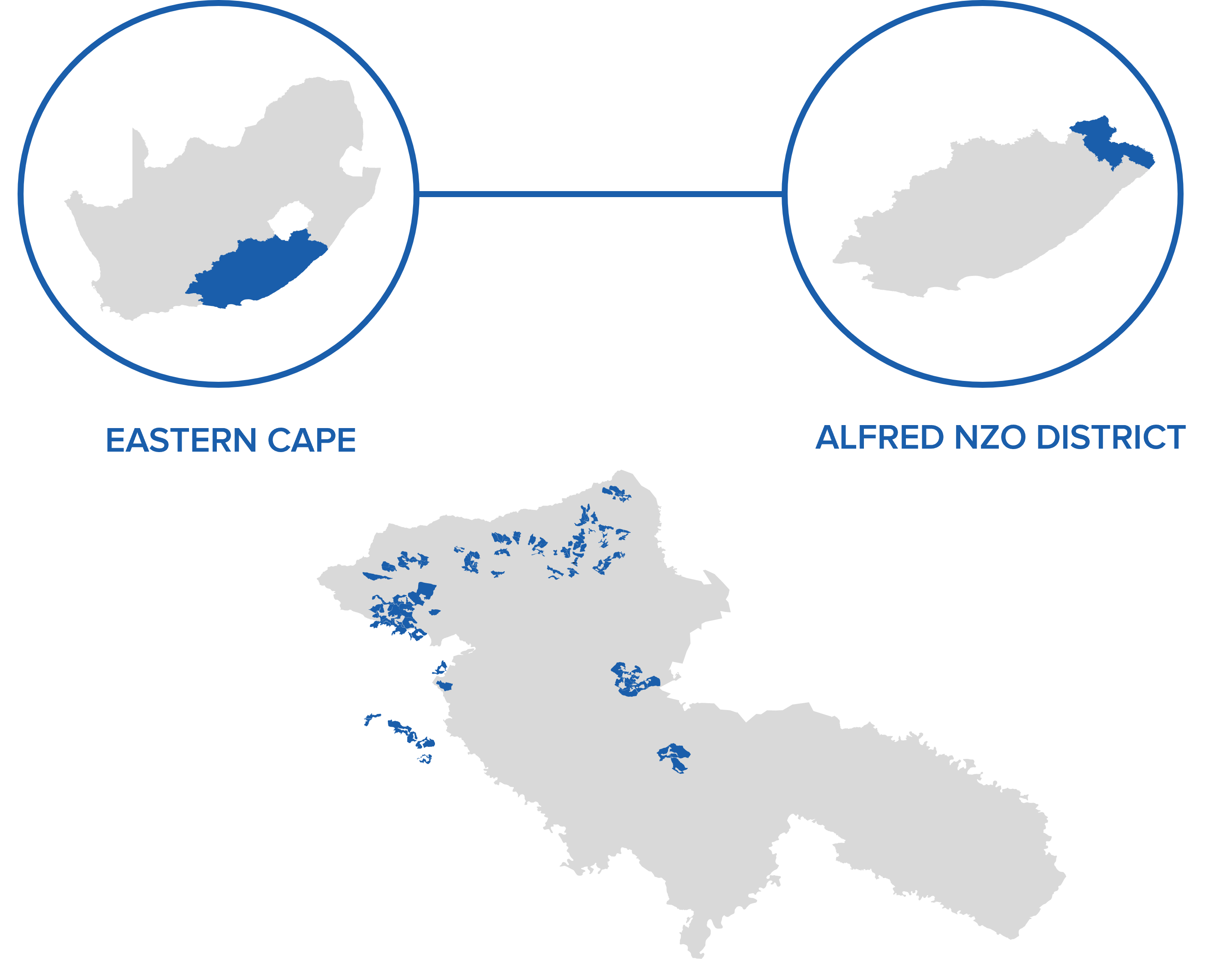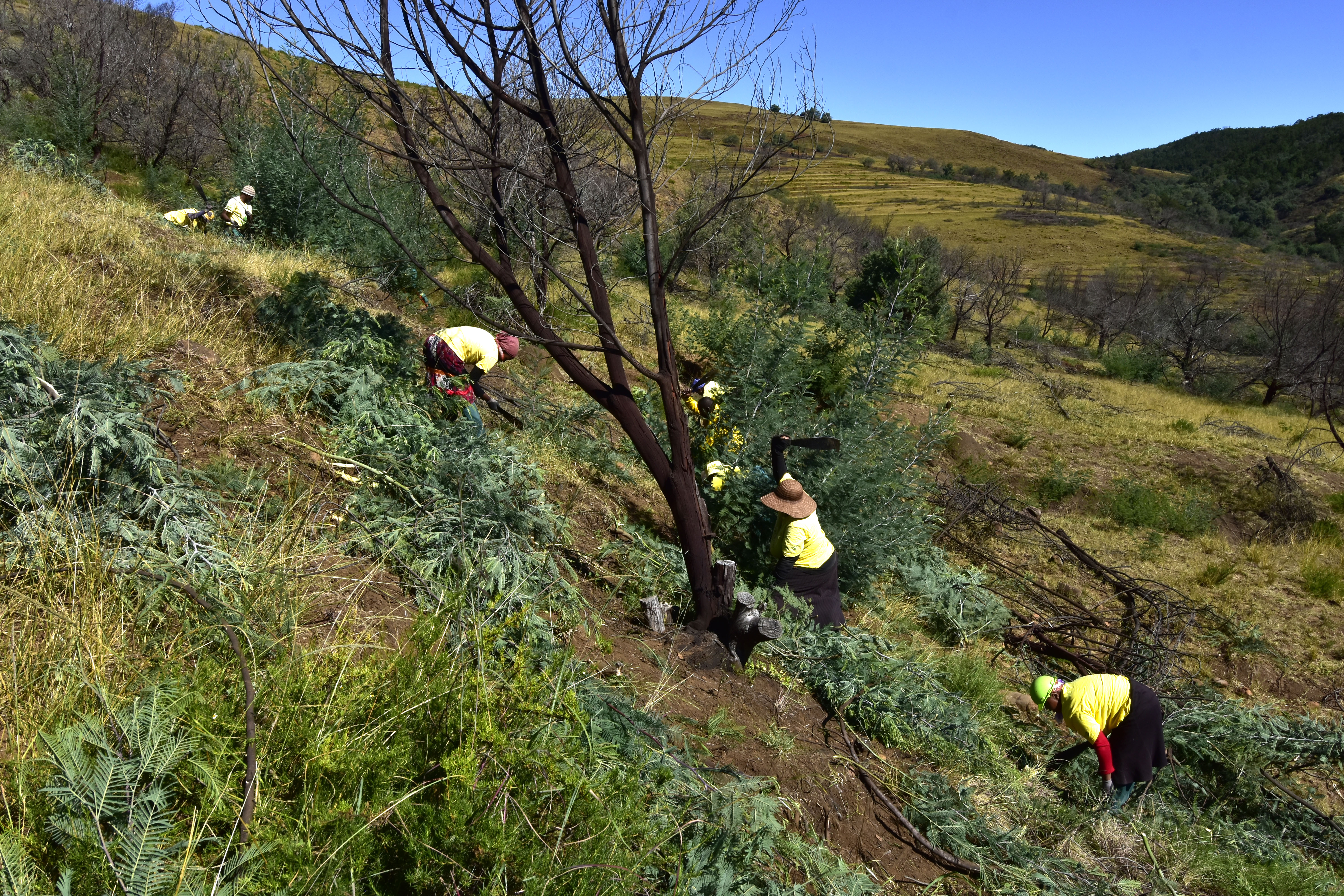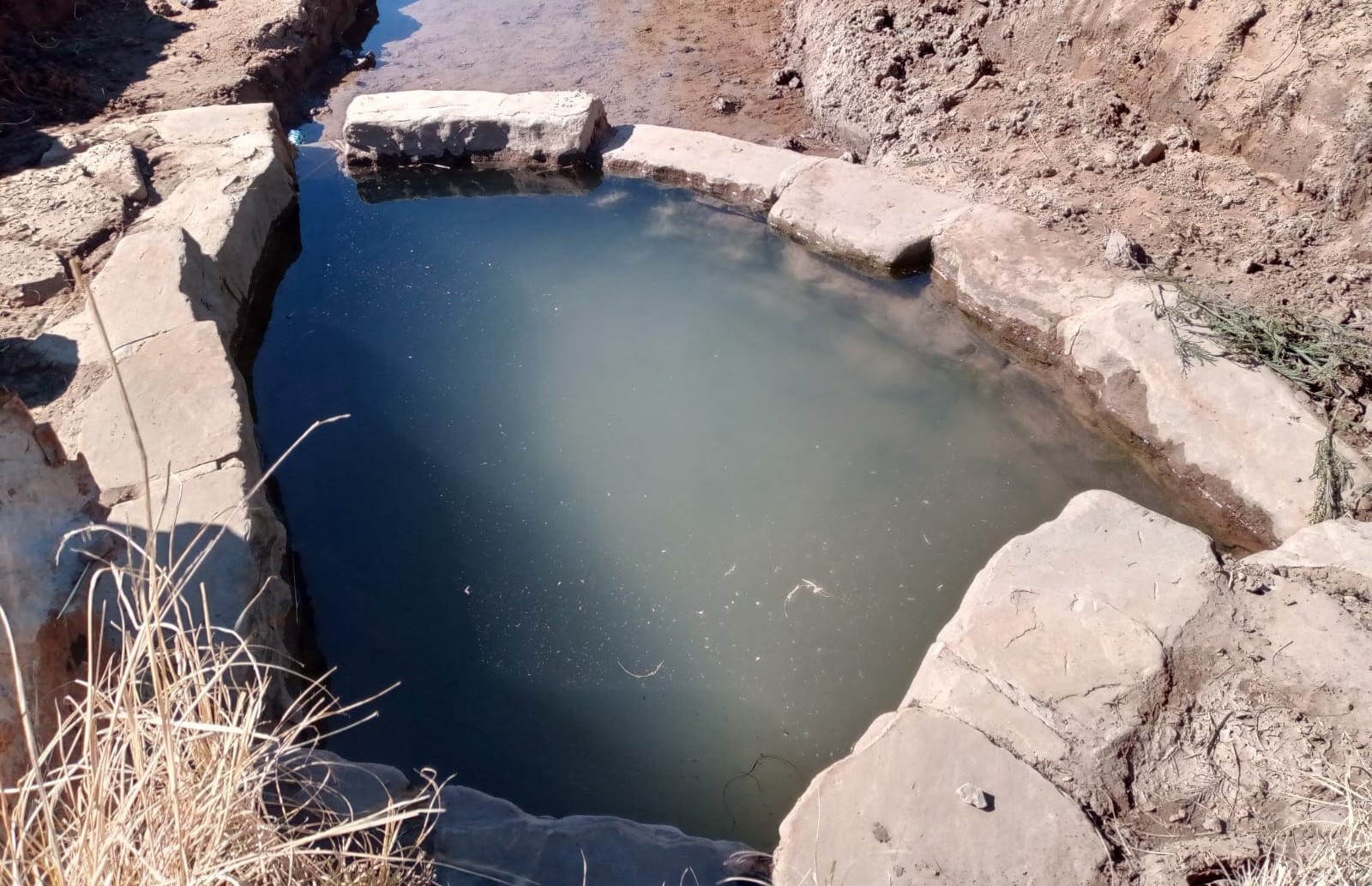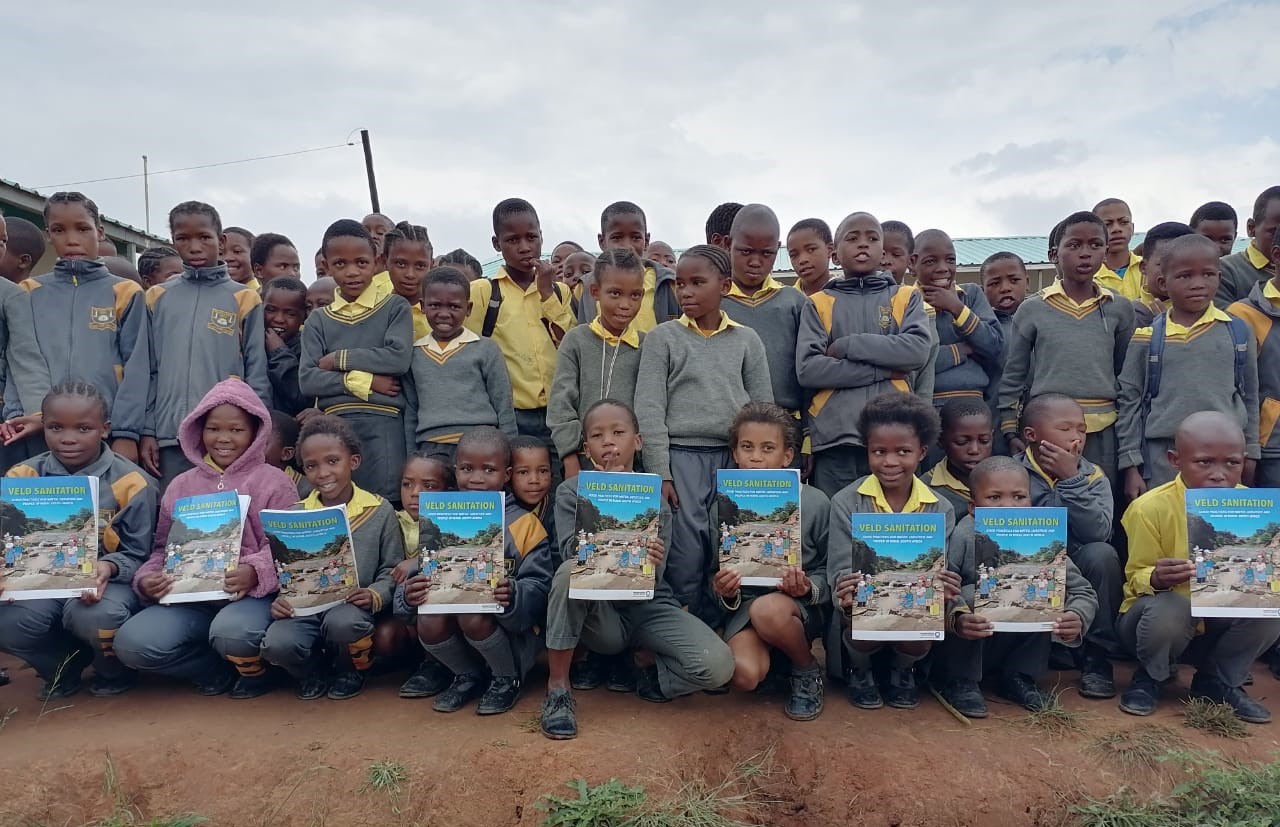Stretching over 2 million hectares, the Umzimvubu river catchment in the Eastern Cape is one of the most vital water sources in South Africa, supporting nature and people.
The Umzimvubu river catchment supplies water to more than 2 million people in the landscape and is one of the few remaining “near‐natural rivers” in South Africa. The catchment is located in the second richest floristic region in southern Africa, the Maputaland–Pondoland–Albany biodiversity hotspot which boasts some 1,900 endemic plant species. With diverse landscapes, from rugged mountains to coastal wetlands, alongside favourable climatic conditions, the landscape has rich habitats that sustain remarkable biodiversity.
Yet, the catchment area has become vulnerable to degradation from erosion, alien invasive plants, inappropriate burning or grazing practices, and other pressures, that pose a threat to the environment and people that depend on the land. Despite being a strategic water source area, many people still lack access to safe, clean drinking water— a situation that could worsen if these threats are not addressed.
Read more from our Vulnerability Assessment.
WHERE WE WORK
Unlocking investment opportunities for nature-based enterprises

OUR IMPACT
20 803
hectares under improved management
2310
hectares cleared of alien plants
770
nature-positive jobs created
613
people with improved access to clean water
on the ground

© Trond Larsen
The War On Wattle in Ward 21, Mvenyane
Conservation South Africa and partners, with funding from the South African National Biodiversity Institute (SANBI) as part of the Presidential Youth Employment Intervention, recruited 770 people (37% women and 53% youth) to clear 2310 hectares of wattle-infested rangelands. After witnessing the positive impacts of removing wattle, the community started voluntarily clearing wattle from rangelands. Follow up clearing is now being undertaken by youth from the local area, through the YES programme and by community members through the Social Employment Fund.

© Paulus Mfazwe
Natural spring protection and rehabilitation
In rural areas, without regular access to piped water, every drop of water must be collected and taken to the household. The challenge of obtaining an adequate supply of water has left many communities with no option but to use informal sources such as natural springs or seeps for their water needs. These water sources are often also used by livestock, leading to contamination of water sources for human use. In collaboration with the Umzimvubu Catchment Partnership and local municipality, we have been working to protect natural springs in 16 villages in the region. This is done in a way that supports economic development and job creation for local people but also enhances the flow of benefits from ecosystem goods and services to people and nature.

© Fezile Matandela
Water, Sanitation and Hygiene (WASH) activities and veld sanitation
The WASH approach integrates freshwater conservation and empowers communities as land and water stewards to protect their health and the health of the ecosystems that sustain them. Through this heightened awareness there will be conservation, and human health and well-being benefits that contribute to building the resilience of communities to the impacts of climate change.
Through the support of the Regenerative Fund for Nature, we have been working with 12 local sheep grazing associations to roll out regenerative grazing practices across 13 660 hectares of communal rangeland. Small-stock farmers implement nature-based solutions, like season-long rotational rest in exchange for benefits that improve their livelihoods such as livestock medicines, sheep shearing services, and access to the formal market. Learn more
RESOURCES
CONTACT US
Umzimvubu Office
112 Main Street
Matatiele
Eastern Cape 4730
South Africa
Phone: +27 39 737 3668

